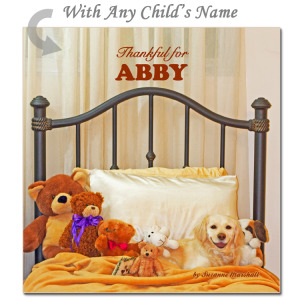 Our personalized kids books are designed to boost kids health, particularly their confidence and self-esteem. We use affirmations for kids to emphasize their strengths and capabilities.
Our personalized kids books are designed to boost kids health, particularly their confidence and self-esteem. We use affirmations for kids to emphasize their strengths and capabilities.
Nurturing high self-esteem in children boosts their ability to conquer fears, overcome challenges, embrace happiness, and find peace within themselves and the world.
What is Self-Esteem in Children?
Self-esteem is like a compass of how capable and lovable we feel we are. As a result, it affects every aspect of our lives – from our friendships and relationships to our studies and work.
Self-esteem is our core beliefs about ourselves. Do we believe we are capable, lovable, worthy? The best test of our self-esteem is when we are faced with conflicts or problems.
A child with high self-esteem may see a failure as a temporary and external obstacle. In contrast, a child with low self-esteem may see a failure as a reflection of who they are, and therefore, insurmountable.
Adults and children with low self-esteem are more likely to face any new challenge an immediate source of stress or frustration with thoughts of “I can’t,” or “I’m not ___ enough” (fill in the blank with “smart,” “good,” etc.). Low self-esteem urges us to give up before we have even started, and leads to anxiety and depression.
Self-Esteem in Children is Good for the Whole Wide World!
High self-esteem is not only good for your kids, it’s good for the world at large. The happier your children feel about themselves, the more happiness they tend to spread in the world around them. It’s not that they see a “rose colored” world, but rather, one in which they can grow and succeed, despite the problems that arise.
High self-esteem allows us to see conflicts as solvable and/or manageable. Kids with high self-esteem are more ready to ask questions and get the help they need to find solutions, since they are not internalizing the problem.
High self-esteem is accepting both your strengths and your weaknesses. It’s an overall feeling that your positives outweigh your negatives, and you’re heading in the right direction. Kids who feel good about themselves are more likely to triumph over negative pressures and temptations.
How to Promote Self-Esteem in Children
So what can you do to plant the seeds of high self-esteem in children?
Be a Healthy Role Model. Very early, children will pick up on how you treat yourself. As a role model for your children, you want to maintain a healthy self-esteem of your own. Are you forgiving of mistakes? Do you work on your weaknesses, rather than indulging in them? Do you solve problems, instead of allowing them to overwhelm you? Of course, no one is perfect! And accepting errors and temporary set-backs is all part of healthy self-esteem.
Be Positive. Encouragement and support are key. Explain that failures are a natural part of life, and often stepping stones to success. Emphasize that true success is a healthy state of mind, not a destination to reach or object to attain. Focus on what your child is doing well. When your child acts out, make it clear that it’s the behavior (not the child) that is problematic.
Be a Guide. Books can be a great way to discuss difficult situations and conflicts with children in a non-threatening way. As you discuss a book’s story and characters, you will learn more about your child’s core beliefs. Guide your child to be a creative thinker and problem-solver, even if it means altering the story yourselves.
CLICK HERE for information on self-esteem by the National Network for Childcare.
Relieving Anxiety in Children
Our personalized kids’ books are written to reduce anxiety in children. By using positive affirmations, we boost the child’s core self-esteem, strengthening their ability to face and overcome challenges.
We understand how normal it is for children to feel anxious as they grow and face new challenges. Today, with technology and information ever-present, it’s especially easy for children (and adults, too!) to feel overwhelmed by what’s going on in the world around them.
Early on, separation anxiety is a major issue for children. It’s also quite usual for children to fear the dark, storms, and strangers. Anxiety in children can reveal itself in many ways. While some children may be overly clingy, others may retreat into silence. If parents suspect that normal anxiety may be turning into phobia, special help and intervention may be needed.
Read Aloud Affirmations: Anxiety in Children Books
Books can be an excellent launching pad for discussion about anxieties or stresses. As you read a story together, you can discuss how the characters deal with such issues. Creating a dialogue with children about their fears can help them work their way through them.
Even if a child’s fear is normal, a parent’s intense desire for their child to be happy and healthy can cause them to overreact. Reading books to children can often help the parent as much as the child discuss these issues in a non-threatening way.
Benefits of Reading to Your Child
Both you and your child have a great deal to gain from reading together.
- Stronger Bond. Reading brings us together in ways that play, movies, games cannot. It’s a time of slowing-down and cuddling-up. It can be a reflective time to share feelings and thoughts, as well as a time to share smiles and laughter over more light-hearted stories. Even after your child learns to read on her/his own, it’s important to read together.
- Stronger Communication & Concentration. Reading to your child teaches essential skills for speech, language, pronunciation, and reading or pre-reading. As you discuss the story and characters, your child gains valuable communication skills. Studies have shown that children who are read-to early on tend to have a higher aptitude in school. Reading helps children with concentration, memory rentention, and attention span.
- Stronger Judgment. Stories expands a child’s imagination and understanding of the world. Through reading, she/he can learn more about cause/effect, and consequences of actions. Reading and discussing stories with your child can boost your child’s own decision-making process.
- Stronger Coping Skills. Stories have the power to help children understand and cope with situations. A book about themes in the child’s own life (such as bullying in Big Small Dog) can help your child discuss and overcome her/his own issues.
How to Read to Your Child
It’s never too early and it’s never too late to start reading to or with your child! Reading together can be a powerful bonding and confidence-building activity.
- Be comfy! Find a comfortable spot with good lighting to read by. The more comfy and cozy, the better.
- Be consistent! Find a consistent time each day to read together. You are teaching your child healthy habits when you create a regular reading routine.
- Be positive! Whether you or your child is the one reading aloud, make sure that you are actively engaged and encouraging. Pause over pictures, say words together, discuss tricky topics, and find plenty of reasons to smile and laugh.
- Be interactive! If your child is very young, point to pictures as you say the words. When the story is over, ask your child for impressions of the story, the characters, and the pictures. For older children, create a dialogue where you can learn about each other as well as about the themes in the book.
- Be expressive! You don’t have to be a great actor or actress to enchant your child with silly and dramatic voices. If they see you are having fun with the story, they will, too.
- Go beyond! Read stories that are on your child’s interest level, but beyond their reading level. Not only can you stretch the imagination, you can motivate her/him to improve skills.
Reading and Kids: What to Expect
Don’t fret over chewed or torn pages. Don’t get upset if your toddler crawls away in the middle of the story. Don’t feel like you have to finish every book.
Remember, you’re in this for the long haul. You’re starting and developing a healthy habit and a special bond with your child.
Be prepared to repeat your child’s favorite story over and over and over again. It’s all part of the process.
